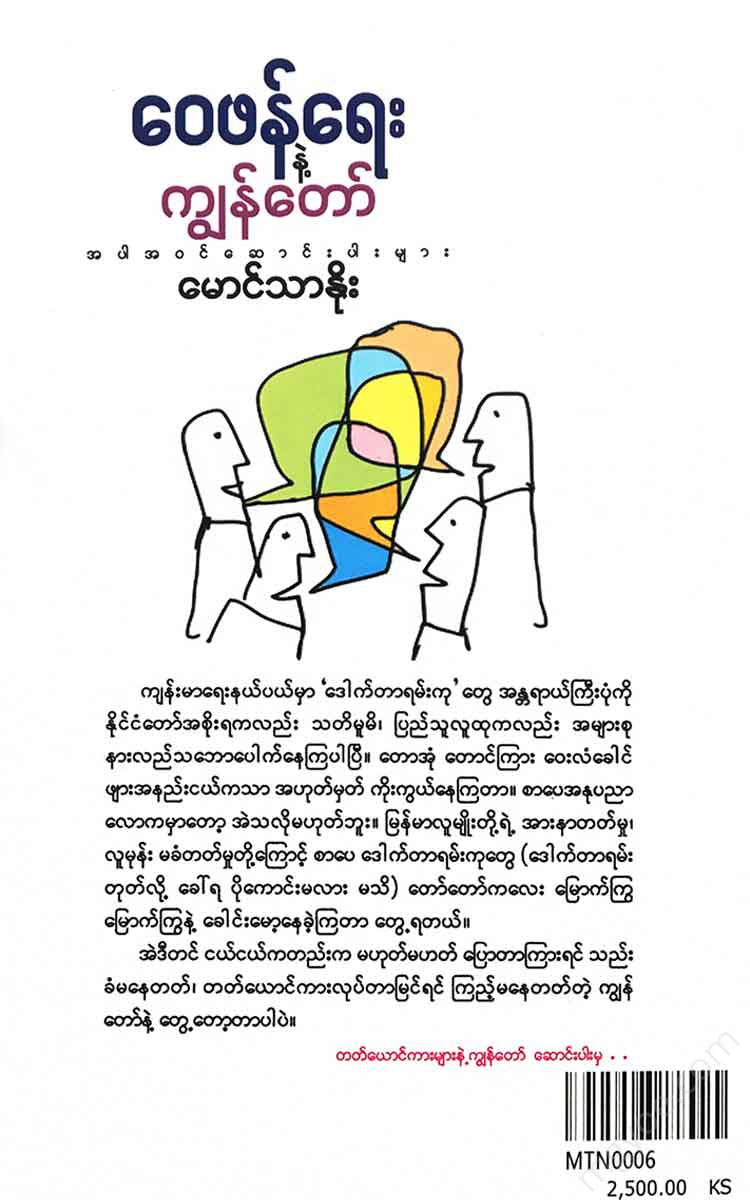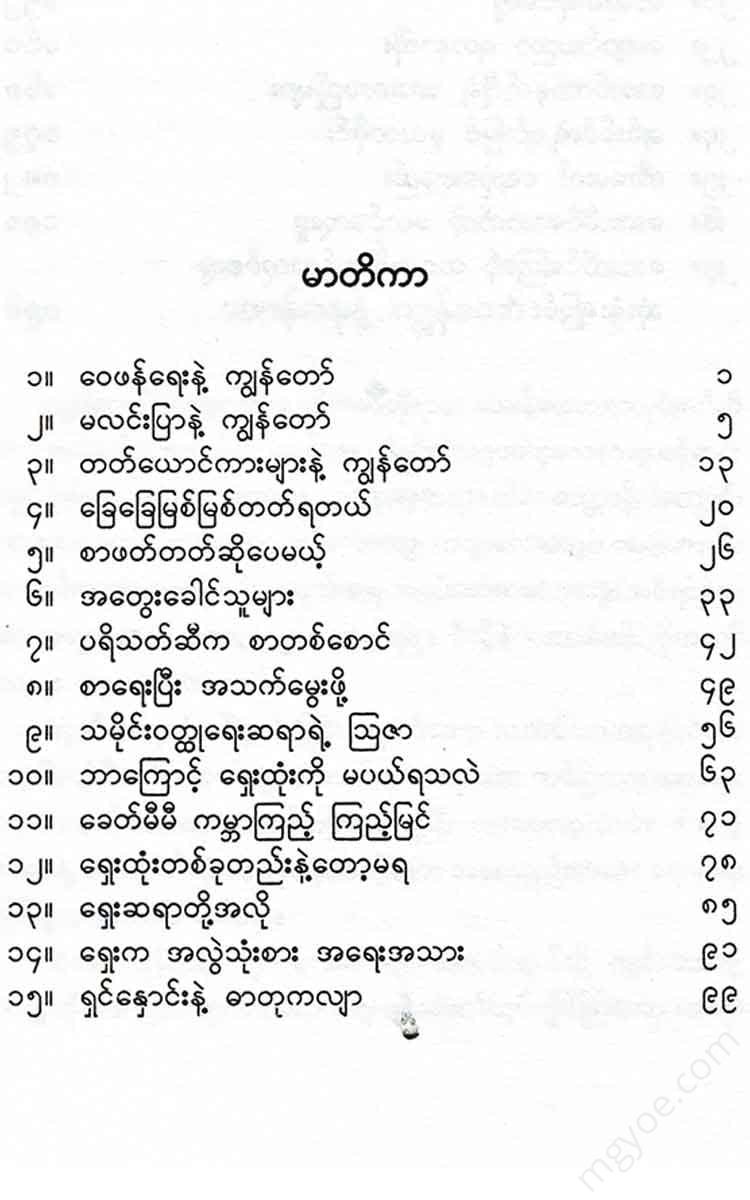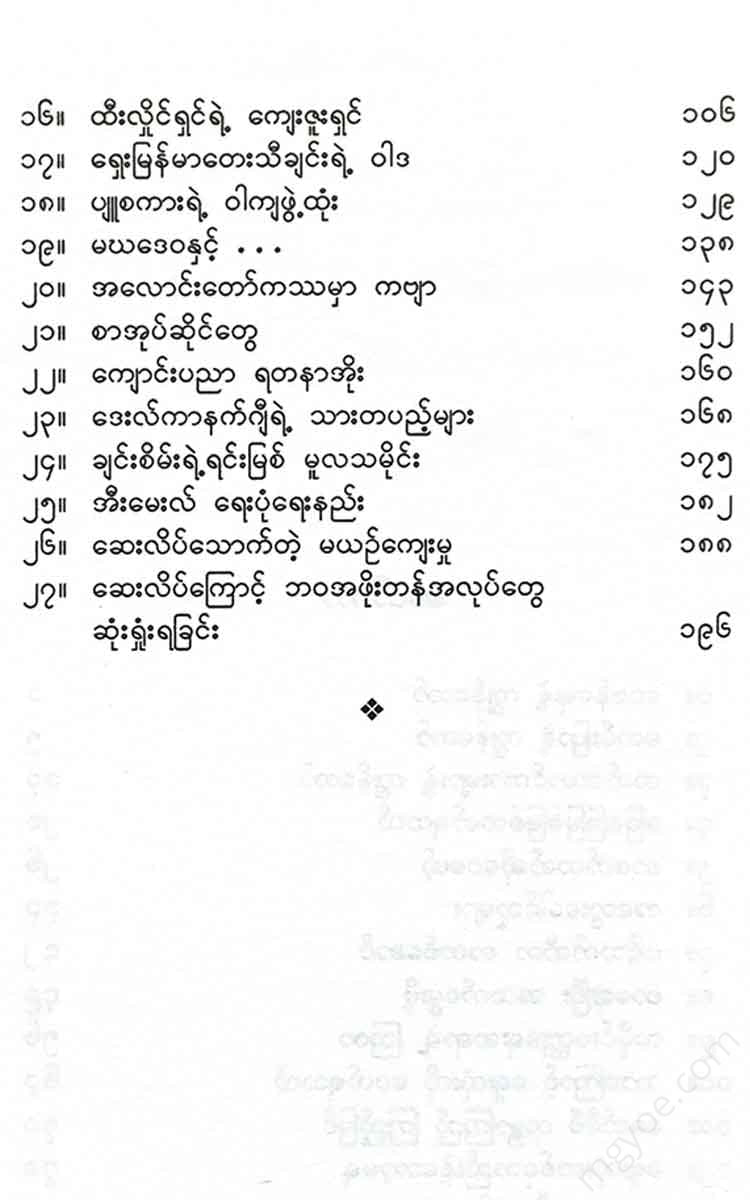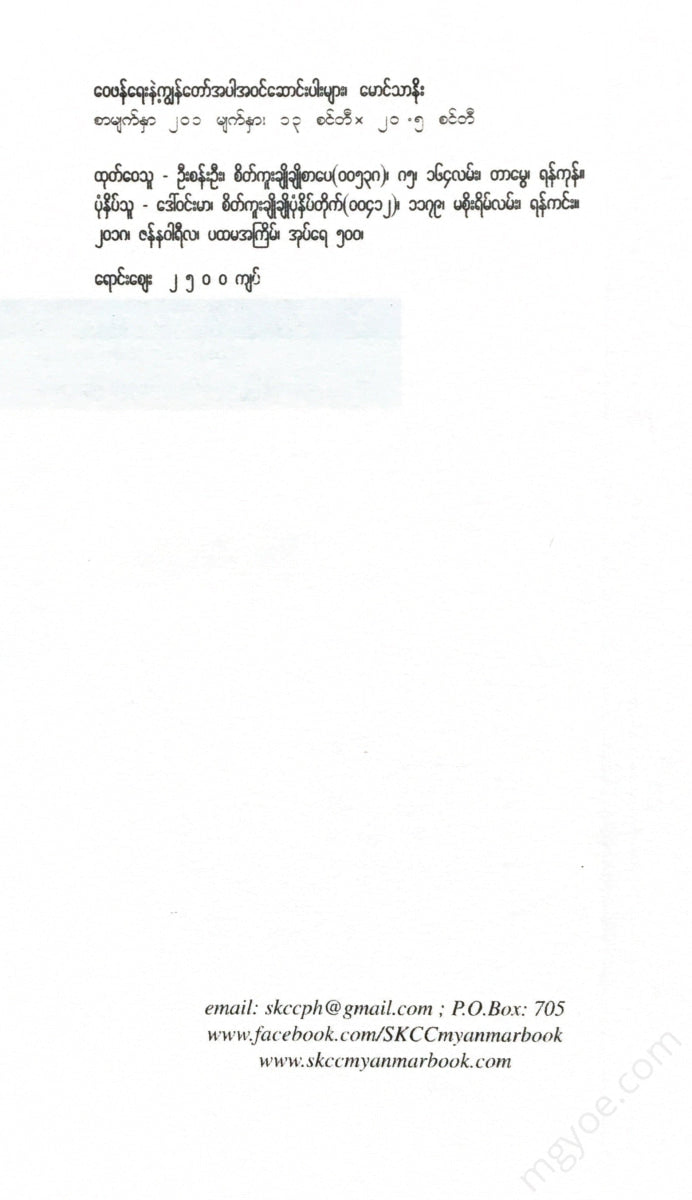စိတ်ကူးချိုချိုစာပေ
Maung Thano - Criticism and Me
Maung Thano - Criticism and Me
Couldn't load pickup availability
When I said I loved writing, I didn't mean I wanted to be a critic. When I was young, I loved painting, so I wanted to be a creator. A poet, a novelist. That's it. Until my university days, I only wrote short stories and poems.
I had to write descriptive essays, reports, and critiques as required by the school classroom. That's how I learned to write articles.
Later, outside the school campus, I became a journalist. I started writing many articles about news, presenting ideas, discussing, and criticizing. But literary criticism was less important. I don't even know if I wrote it at all.
In Upper Myanmar, we university graduates joined the Writers' Association, and we worked together as brothers and sisters, like comrades in arms. When there was a task to be done, we divided our responsibilities and did it. We worked together and worked together. If there was a paper to be written, I would usually assign the responsibilities to a poet, to a poet who was talented in writing, and to a writer who was a language expert.
One day, a public figure called us to discuss the matter. There was no literary critic in our country. It was good for one of us to try. So I suggested that one of us should take up this position, Maung Syang. From that time on, Maung Syang began to write literary criticism articles in the public newspaper. As the articles grew, they were published in a book. Thus, Maung Syang became recognized as a literary critic (whatever those who disliked him said).
In 1968, I moved to Yangon. Maung Taung and his family were already living there. I had written poetry in school and started translating poems. When a publisher appeared, “Thin Shu Pin Yeik” was published. When a publisher did not appear, “Thin Shu Pin Yeik 2” was not published. The book of Asian poetry “Moe Makhe Yeik” was also an idea and did not appear. So I continued to write poetry translation articles in magazines. In Mandalay , I also wrote some articles on language as a supplement to the “New Writing” magazine. One day, Comrade Mya Than (Tin) came to the apartment on Sule Road where I was living at the time. “For you,” he said, and presented me with his new book. We went down to the tea shop (Shwe Kyi Aye, now Excellent) below the building. At night, I read the book that Comrade had given me in one sitting. I was deeply saddened by the reading. But - What if our Comrade has not changed? Can't we hide his great talent?
At that time, I still believed in leftist ideology. In leftist ideology, there is no China line, no Peking line, no Moscow line. The Peking line and the Moscow line. The difference is that the working class must lead, and all capitalists must be destroyed and socialism must be established, which is the Moscow line. This is true for industrialized capitalist countries. In semi-feudal and semi-colonial countries like China, where eighty percent of the population is peasants, this is not possible. Before socialism can be established, people's democracy must be established, and the working class must form an alliance with the peasant class and the middle class of the national capitalists, not fight them. The Chinese line is that only the imperialist capitalists called comprador should be defeated.
In the novel “Sword Mountain”, if Than Chaung represents the working class, U Bhar represents the national capitalist. They must form an alliance. They must also form a great alliance with the middle class, Konanda. They must form an alliance and wage a revolution. Now, Than Chaung treats U Bhar as a great enemy and attacks him, which is politically incorrect. It is a childish socialist idea that attacks all capitalists.
The next day, when I met Ko Mya Than Tint on 33rd Street, he said, “You have something to tell me.” “Tell me, I want to tell you too,” he said. “I can’t tell you all this in a tea shop. I’ll write it down on paper. That way it will be complete.” “Okay, I’ll come to your room.” They sat on the south-facing sofa facing each other and made an appointment for the next day, maybe the next day.
He arrived at noon on the day we had set up. I handed out the papers I had written. He sat on the north-facing sofa in my living room, reading each one, shaking his head and muttering, “Not yet, not yet.” I smiled as he did so.
When I finished reading it, I saw that he was quite upset. “This is your opinion, what you have to say, right? I have something to say too,” he said. It was worth noting that we didn’t talk much that day. I didn’t follow him to Shwe Kyi Aye Teahouse as usual.
This is how I criticized Mya Than Tint when his novel “Sword Mountain” was first published in 1973. It was not literary criticism. It was a political criticism. Another criticism that I made in 1973 cannot be called purely literary. It was a criticism about language.
In 1972, a group of writers led by Linyeon Maung Maung published a series called “Myanmar Literary Landscape”. Issue 1 was published in November 1972. It included writings by Linyeon Maung Maung, Aung Zay (Taw Pagoda Kalay), Maung Tsang, Dagon Tary, and a poet. Issue 2 was published in March 1973. Maung Tsang, Paragu, Mya Than Tint, Dagon Tary, Bhamo Tin Aung, a poet, and I contributed to the writing.
Ma Lin Pya and I
Ma Lin Pyay is a name I gave to a girl I used to be when I was little. She wouldn't know. Her style is different from other girls her age, she's not lively and lively. She's a quiet and calm girl, so I gave her this name because she's like the calm and peaceful Choe Lin Pyay. She didn't become a queen at university, but she had a good appearance, so there were people who liked her. I tried to get close to her, and when I thought I was getting close, I found out that she was playing with someone else. And
Now that I think about it, it's funny. I'm not even a girlfriend. A girl likes who she likes. I feel for her. What does she have to do with me?









